
Search
for
Sort by
Research
240-270 / 1000+ results
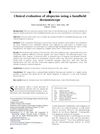
research Clinical Evaluation of Alopecias Using a Handheld Dermatoscope
A handheld dermatoscope helps diagnose different types of hair loss effectively.
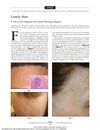
research Lonely Hair
Isolated long hairs at the original hairline can help diagnose Frontal Fibrosing Alopecia.

research Expression of mRNA for Androgen Receptor, 5α-Reductase, and 17β-Hydroxysteroid Dehydrogenase in Human Dermal Papilla Cells
Hair sensitivity to androgens is partly controlled by specific enzyme expressions in different hair areas.

research Clinical Diagnosis of Common Scalp Disorders
The document concludes that accurate diagnosis is crucial for effectively treating common scalp disorders, which often have similar symptoms.

research Feline Atopic Dermatitis: A Retrospective Study of 45 Cases (2001–2012)
Cats with atopic dermatitis often have severe, year-round itching and respond well to certain treatments.
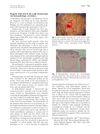
research Pinpoint White Dots in the Scalp: Dermoscopic and Histopathologic Correlation
Small white dots on the scalp seen with a dermoscope correspond to sweat ducts and vary with different hair disorders.

research The Impact of Oxidative Stress on Hair
Oxidative stress damages hair and contributes to aging, and managing it can help maintain hair health.
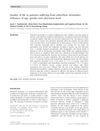
research Quality of Life in Patients Suffering from Seborrheic Dermatitis: Influence of Age, Gender, and Education Level
Seborrheic dermatitis lowers quality of life more for women, younger people, and those with more education.

research Telogen Effluvium: A Sequela of COVID-19
COVID-19 may cause a temporary hair loss condition called telogen effluvium in some patients after recovery.

research Clinical, Ultrasound, and Hormonal Markers of Androgenicity in Acne Vulgaris
Acne severity is linked to higher levels of certain androgenic hormones, even when those levels are within the normal range.
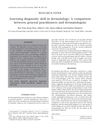
research Assessing Diagnostic Skill in Dermatology: A Comparison Between General Practitioners and Dermatologists
Dermatologists are more accurate than general practitioners in diagnosing skin conditions, especially skin cancer.

research Dermatologic Manifestations of Human Immunodeficiency Virus Infection
HIV can cause unusual and severe skin problems that are hard to treat.
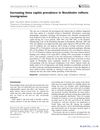
research Increasing Tinea Capitis Prevalence in Stockholm Reflects Immigration
The rise in tinea capitis cases in Stockholm is linked to increased African immigration.

research Chemotherapy-Induced Alopecia Management: Clinical Experience and Practical Advice
The conclusion is to use scalp cooling, gentle hair care, and treatments like minoxidil for managing hair loss from chemotherapy, and stresses the need for more research and collaboration in this area.

research Toxic Epidermal Necrolysis
Toxic epidermal necrolysis is a severe skin reaction often linked to drugs, requiring careful medication use and supportive care.

research Adult Female Acne and Associated Risk Factors: Results of a Multicenter Case-Control Study in Italy
The study found that family history, personal history of adolescent acne, no pregnancies, hirsutism, office work, stress, and low intake of fruits/vegetables and fish are risk factors for adult female acne.

research Influence of Substance P on Cultured Sebocytes
Substance P may worsen acne by increasing inflammation, but corticosteroids might help by reducing this effect.

research Primary Cicatricial Alopecia: Recent Advances in Understanding and Management
New understanding of the causes of primary cicatricial alopecia has led to better diagnosis and potential new treatments.

research Quality of Life in Alopecia Areata: A Study of 60 Cases
Alopecia areata seriously lowers quality of life, especially affecting self-image, mental health, and social life.

research Clinical Utility and Validity of Minoxidil Response Testing in Androgenetic Alopecia
Minoxidil response testing helps treat hair loss effectively and safely.

research Acne in the Adult Female Patient: A Practical Approach
Hormonal therapies are safe and effective for treating adult women's acne.

research The Histopathology of Noncicatricial Alopecia
Different types of hair loss have unique features under a microscope, but a doctor's exam is important for accurate diagnosis.

research Evidence-Based Approach to Cutaneous Hyperandrogenism in Women
The conclusion is that oral contraceptives and antiandrogens can treat hirsutism and acne in women with cutaneous hyperandrogenism, but more research is needed for effective treatments, especially for hair loss.
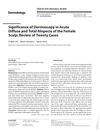
research Significance of Dermoscopy in Acute Diffuse and Total Alopecia of the Female Scalp: Review of Twenty Cases
Dermoscopy effectively distinguishes between acute total hair loss and other types of female hair loss.

research Folliculitis Decalvans: Effectiveness of Therapies and Prognostic Factors in a Multicenter Series of 60 Patients with Long-Term Follow-Up
Some treatments for folliculitis decalvans work well, with tetracyclines and a mix of rifampicin and clindamycin being most effective.

research Trichodysplasia of Immunosuppression Treated with Oral Valganciclovir
Oral valganciclovir improved a patient's skin condition caused by immunosuppression.

research Does Prolactin Play a Role in Skin Biology and Pathology?
Prolactin may be important for skin growth and immune function.

research Chronic Telogen Effluvium Is Due to a Reduction in the Variance of Anagen Duration
Chronic hair shedding may be caused by less variation in hair growth times and might stop on its own after several years.

research Studying the Genetic Predisposing Factors in the Pathogenesis of Acne Vulgaris
Genetics play a role in acne, but how exactly they contribute is not fully understood.